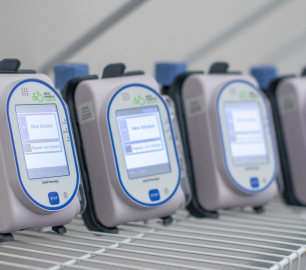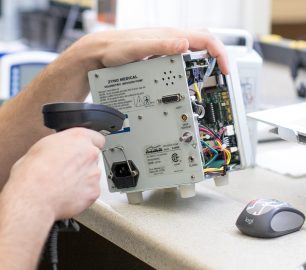COVID-19 wreaked havoc across the globe.
As people sought safety at home, many individuals also dodged the shelter of healthcare facilities due to increased fear of exposure to the virus.
Though this isolating process reaped benefits for the fight against the uncontained virus, it unintentionally caused panic in the immune globulin (IG) community as plasma donations declined.
With some immunoglobulin medications needing nearly 1300 donors to treat one patient, and a lead time of seven to twelve months, it became unrealistic for the infusion community to assume there would be enough plasma to treat the current patient population.
At the start of the pandemic, medical facilities did not anticipate the decline in new patient referrals to diminish more significantly than the medication production, causing – to the surprise of many – the shortage to be put on hold.
Immune globulin is continually in high demand to prevent infections and diseases such as Primary Immunodeficiency, various cancers, CIDP, Kawasaki Disease, and several off-label treatments which makes managing the available dosages more difficult. In addition, medication types align with administration methods – intravenous, subcutaneous, or intramuscularly – bringing an additional layer of complexity to IG.
During IG treatment, whether via IVIG, SCIG, or IMIG, if patients skip a dosage the therapy is never made up. As people canceled treatments during 2020 and into the start of 2021, the passed dosages began to pile up across the United States.
But as many hospitals and facilities are becoming overwhelmed with the backlog of patients who postponed care, the number of administered treatments begins to realign with patient needs.
This buildup may require patients to adjust how their IG is administered if their medication and treatment plans allow. Both IVIG and SCIG can have successful outcomes in a facility or in home, based on patient requirements such as administration timeline and venous access availability.
While the requests for IG continue to rise, receiving timely disposables will allow patients to be given the best quality of care.
“We continue to hear that the demand for SCIG infusions is growing. Patients like the fact that they can infuse in the safety of their own home and have the flexibility to infuse on their own schedule. The pumps used to administer SCIG are mechanical, easy to use and the disposables are made to meet patient needs to ensure an optimal infusion experience.”
With a national reach, Right Way Medical partners with diverse manufactures to host a variety of product offerings to alternate site infusion pharmacies. In addition, Right Way Medical proactively develops safe, cost effective solutions such as IV start kits and hypodermoclysis kits to construct and manage new inventory streams with efficient pipelines.
For full line of services including flexible financing for infusion pumps & disposables, asset tracking, and biomedical services, contact our team at 614-396-7721 or sales@rightwaymed.com.



